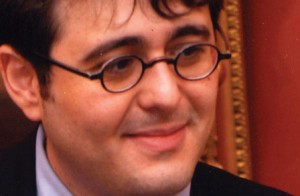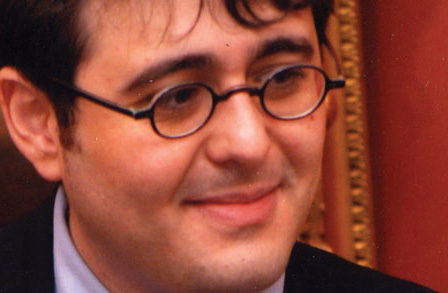
“Poetry and the problem of politics seem to have an affinity,” said poet and essayist Adam Kirsch, who spoke to about ninety students and staff about the intersection of poetry and politics on Tuesday, Nov. 3 in the Benes Room.
However, there are important differences. “Poetry can be absolute, while politics is the art of compromise,” Kirsch said to an audience of about 90 in the Hamilton-Williams Campus Center Benes rooms on Tuesday.
The timeline of Kirsch’s lecture spanned from Plato to Percy Shelley to the Nazis. In Plato’s time, he said, poetry was highly regulated by the government because it was believed to have the same influence violent video games are believed to have nowadays.
But people do not think of poetry this way anymore, Kirsch said. “Literature is no longer a cutting edge entertainment technology.”
He said the Nazis performed book burnings because they believed books shaped the minds of citizens, so only “the right books” can be allowed into the country.
“Literature becomes freer as it becomes less dangerous, and it becomes less dangerous when it becomes less powerful,” Kirsch said.
Junior Hannah Simpson said she particularly enjoyed Kirsch’s references to well-known literary works and how his presentation was structured.
“I like how he explained various trends in poetry, basically starting in ancient Greece all the way to modernism,” she said.
Junior Joe Pileski said what most stood out to him was Kirsch’s comments about poetry’s role in the world and about the Romantics claiming Milton was “of the devil.”
“The most energetic parts of a poem — what makes a great poem the greatest — is not the moral center of the poem necessarily,” Pileski said. “I think the Romantics kind of missed the point a little bit.”
Kirsch’s latest book, “Rocket and Lightship: Essays on Literature and Ideas,” comes out Nov. 17.
